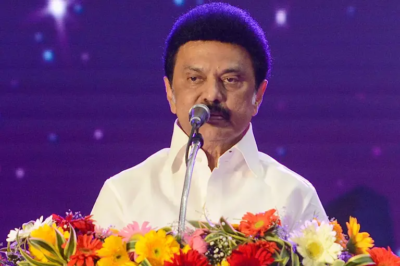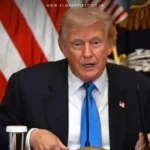
CM Stalin emphasizes the need for state autonomy to protect Tamil language and rights.
Tamil Nadu refuses to adopt the Centre’s three-language policy, sticking to Tamil and English.
DMK opposes Hindi and Sanskrit imposition in schools, raising concerns over linguistic bias.
Why is Tamil Nadu Rejecting the Three-Language Formula?
Chief Minister MK Stalin reaffirmed Tamil Nadu’s commitment to its two-language policy, rejecting the Centre’s three-language formula under the New Education Policy (NEP). Speaking in the Assembly, he declared that even if the Union Government offers ₹10,000 crore, the state will not compromise on its long-standing policy of Tamil and English.
Stalin stressed that language is not just a tool of communication but a matter of identity, culture, and autonomy. The ruling DMK and other opposition parties, except the BJP, have strongly opposed the imposition of Hindi and Sanskrit in schools.
DMK MP Kanimozhi highlighted a major disparity in Tamil Nadu’s Kendriya Vidyalayas, pointing out that while there are 86 Hindi and 65 Sanskrit teachers, there are none for Tamil. She questioned whether Hindi and Sanskrit were officially declared national languages, calling the language push an attempt at cultural imposition.
What Happens Next?
CM Stalin has promised an important announcement soon regarding state autonomy.
Tamil Nadu will continue to resist the three-language policy, prioritizing Tamil and English.
The state government remains firm in upholding its linguistic identity, even if it means rejecting central funds.
Tamil Nadu has a history of opposing Hindi imposition, dating back to the anti-Hindi agitations of the 1960s. The latest developments indicate that the state will continue to assert its linguistic and cultural autonomy in the face of national education reforms.









































Leave a Reply